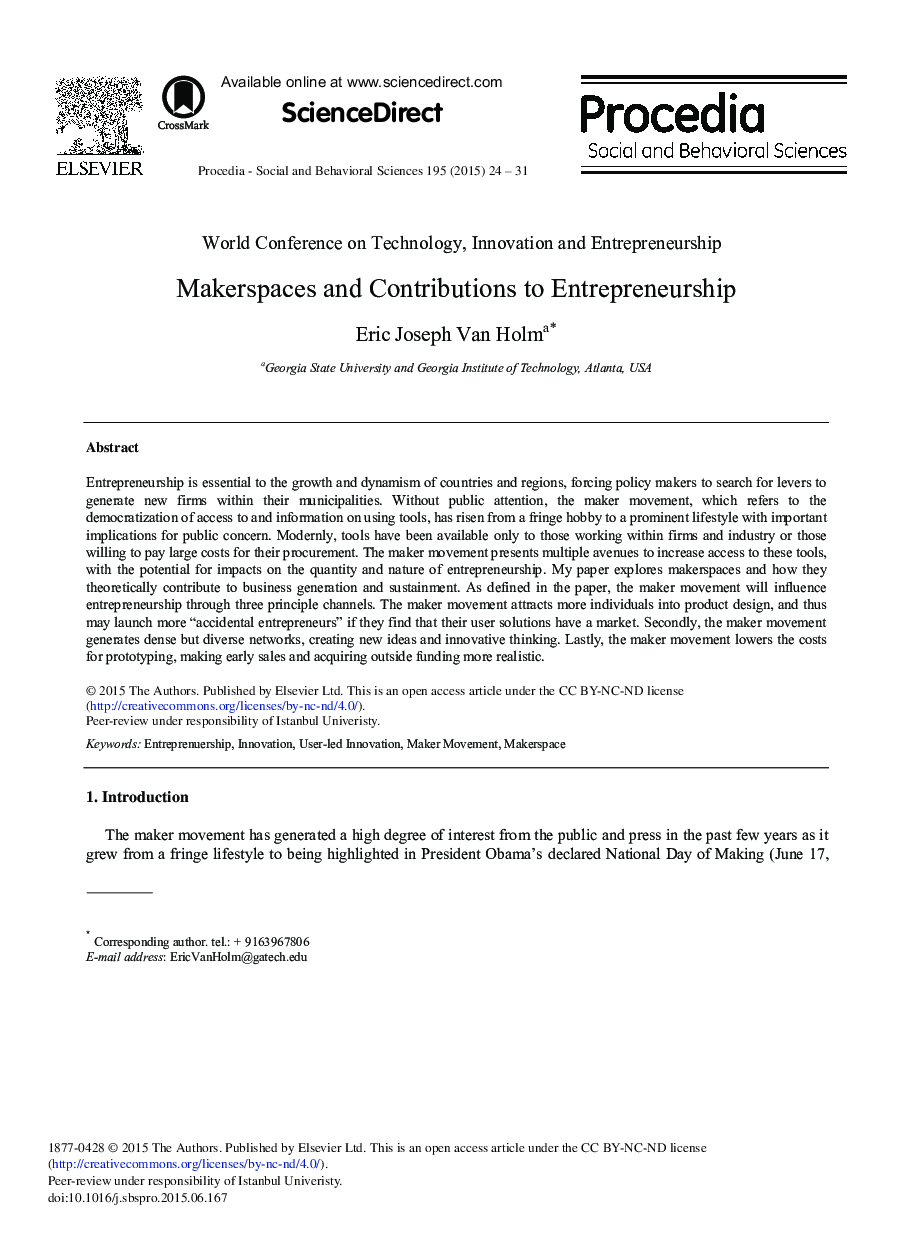| Article ID | Journal | Published Year | Pages | File Type |
|---|---|---|---|---|
| 1110017 | Procedia - Social and Behavioral Sciences | 2015 | 8 Pages |
Entrepreneurship is essential to the growth and dynamism of countries and regions, forcing policy makers to search for levers to generate new firms within their municipalities. Without public attention, the maker movement, which refers to the democratization of access to and information on using tools, has risen from a fringe hobby to a prominent lifestyle with important implications for public concern. Modernly, tools have been available only to those working within firms and industry or those willing to pay large costs for their procurement. The maker movement presents multiple avenues to increase access to these tools, with the potential for impacts on the quantity and nature of entrepreneurship. My paper explores makerspaces and how they theoretically contribute to business generation and sustainment. As defined in the paper, the maker movement will influence entrepreneurship through three principle channels. The maker movement attracts more individuals into product design, and thus may launch more “accidental entrepreneurs” if they find that their user solutions have a market. Secondly, the maker movement generates dense but diverse networks, creating new ideas and innovative thinking. Lastly, the maker movement lowers the costs for prototyping, making early sales and acquiring outside funding more realistic.
